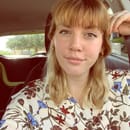Having grown up in the American south, I’ll never forget Banned Book Week. The school library would set aside a display table full of books that had been banned for some reason or another. It could be anything — explicit content, magic or the occult, violence, you name it. Luckily, I was raised in an environment where I could read whatever I pleased.
But really, when you think about it, it simply doesn’t make sense to ban books. We already categorize them into age-groups and genres, why take it beyond that? One can easily avoid books they are against. It’s one thing for parents to limit what their children read, but to ban them from educational environments all together? Literature, fictional or not, offers a wealth of knowledge. Stories of growth, women rising above their station, a revolution against a corrupt government, even a world full of magic — each bring something new to the table. We all have something to learn from one another, and books provide another outlet for that.
I perused a recent list of banned books and was appalled to see Anne Frank: The Diary of a Young Girl among the titles. In the year 2020, Neo-Nazis are bolder than ever and fewer than half (45%) of Americans know that approximately six million Jews were murdered during the Holocaust. Not to mention that there are Americans who outright deny the existence of the Holocaust. We are doomed to repeat history if we do not learn from it, so I ask: how can we learn from it if the most intimate work from that time is banned?
Two more titles listed were 1984 and Fahrenheit 451, both of which deal with dystopian worlds. They feature repression, lack of choice and controlling governments. It’s no joke to say that they’re warnings of an ever-possible future for us. Literature that reminds us of the freedoms we have should be cherished, not removed from sight. On top of that, it’s almost comical to ban a book that contains a plot devised of burning them.
Next on the banned book list that might surprise you is To Kill A Mockingbird: A great American classic that depicts the horrific and unjust way the black community has been treated throughout history. With the great injustices BIPOC are still facing, as well as police brutality, we still have much to learn from To Kill A Mockingbird and other literature that educates us on the injustices others face. To ban any book that covers this subject matter is abhorrent.
Mental illness is a part of many of our lives. Of course, books that contain characters living with mental illness and trauma tend to be banned. The Perks of Being a Wallflower, Thirteen Reasons Why and Eleanor & Park reside among the list of banned books. I wanted to touch on this subject because stories of this nature allow individuals who do not deal with mental illness to learn and become more empathetic.
The same can be said for books that contain neurodivergent characters. The Curious Incident of the Dog in the Nighttime is another on the list, and the main character happens to be neurodivergent. It’s so important to share the stories of those who are not exactly like us so that we may grow together as a society. Otherwise, we will never learn nor better ourselves.
The final title I want to mention is The Kite Runner. This powerful novel deals with several issues, including (but certainly not limited to) poverty, family and the sexual assault of young boys. I probably don’t even need to say it, but yes, it too is a banned book. The topics that people love to stay quiet about, to deny, to look the other way on, are the topics that we need to shed the most light on. How can we ever expect to change our ways if we do not allow books on these topics to be on shelves?
So yes, I believe it is very just to say that banning any book is wrong. Without books to educate us on our history, we are doomed to repeat it. Without books to teach us about the struggles of our peers, how can we empathize with them? Sure, we should be mindful of age-appropriate content for children, but we can also open up fantastic conversations along the way while reading these books. What a close-minded view it is to ban a book.




